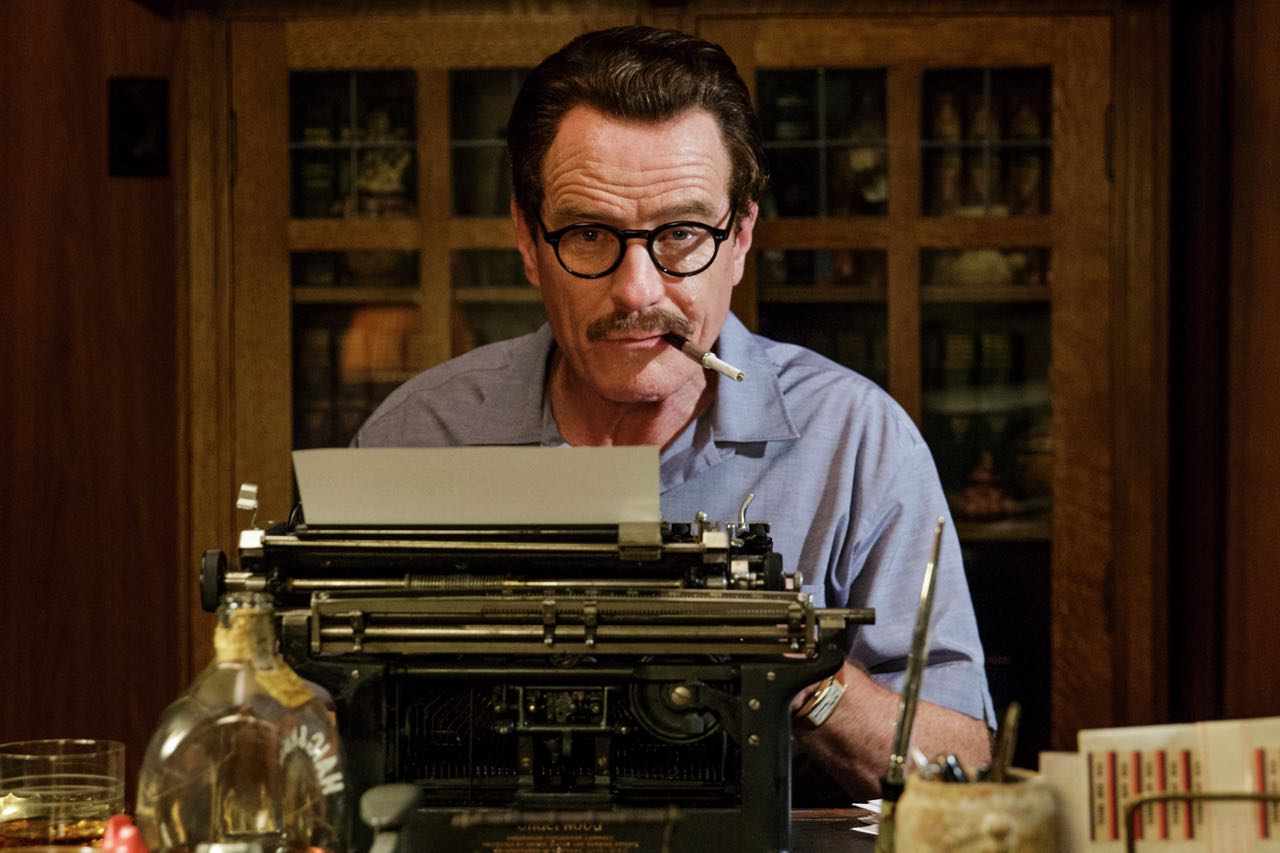Imagine watching a movie made up entirely of the sort of clips that play during the Oscar telecast as lists of nominees are read, and you’ve got some sense of Trumbo. This should tell you something both about the quality of the performances and the film’s self-regard.
Bryan Cranston disappears into the starring role of writer Dalton Trumbo, whose best-known works are the screenplays for Roman Holiday and Spartacus. Trumbo was one of the “Hollywood 10,” a group of screenwriters and directors who were cited with contempt of Congress in 1947 for refusing to answer questions from the House Un-American Activities Committee about their involvement with the Communist Party. He was an unabashed member of the party and a champion of workers, according to this biopic anyway, and he was willing to go to jail in defense of his First Amendment rights.
The bulk of Trumbo’s running time is devoted to what comes after the title character serves a year in prison for his supposed crime. He and others with suspected communist sympathies were rendered pariahs by the film industry for the better part of a decade, with all of the major studios refusing to hire them.
This movie delights — and captures a number of delightful moments — in recounting the ways through which Trumbo subverted the blacklist. He had friends sell screenplays for him. He wrote schlocky B-movies under assumed names. He enlisted his entire family in keeping up the charade of multiple pseudonyms.
And he stopped every couple of scenes, according to this biopic anyway, to deliver a perfectly phrased defense of the noble fight against injustice that he’d undertaken by agreeing to toss off a cheap script for such fare as “The Alien and the Farm Girl.”
The problem with Trumbo’s take on this story is that — despite having to downsize his house and suffer minor domestic strife with his otherwise devoted wife (Diane Lane) and worshipful eldest daughter (Elle Fanning) — it fails to full explore the hurt caused by this anti-Communist paranoia. Trumbo has to take major pay cuts to keep working, but he just keeps on smoking while writing in the bathtub and downing whiskey all the while.
We’re primarily shown the pain occasioned by the blacklist through a composite character — Arlen Hird, played by comedian Louis C.K. — a screenwriter who suffers significant losses during the years he’s shut out of Hollywood. However, his pain seems to have much more to do with his suffering cancer than the loss of his livelihood.
Aside from Trumbo’s brief time in prison — during which the film momentarily loses its mind and think it’s become the Shawshank Redemption — he skates along through the McCarthy era with such ease that it’s hard to feel bad for him even when he can’t pick up the Academy Awards that he’s secretly won.
Which brings me back round to my wish that the screenplay’s own Oscar ambitions had been somewhat more secretive.





